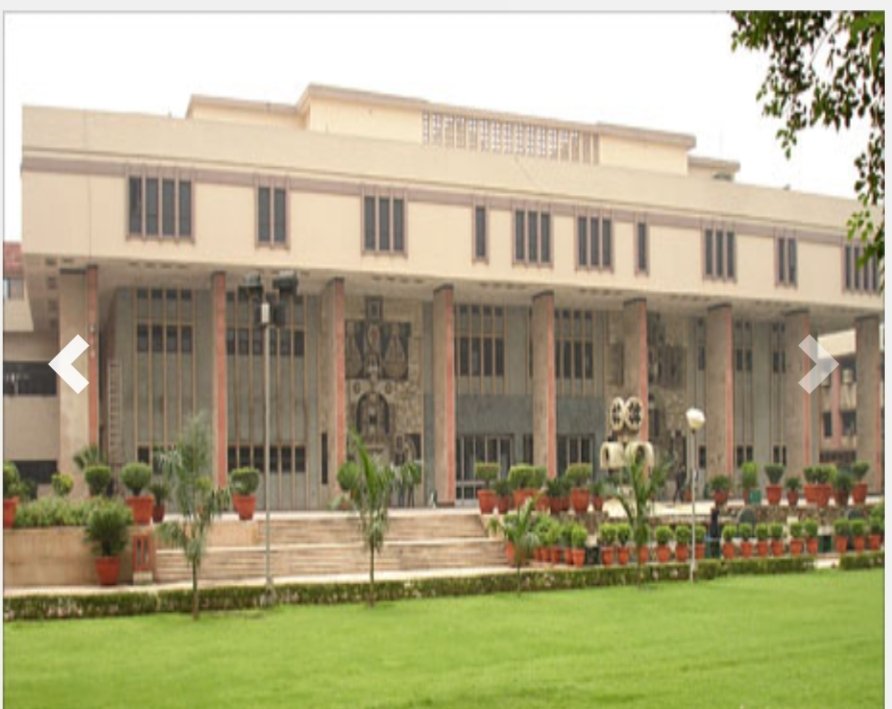The Delhi High Court is currently hearing a significant case involving the social media platform X (formerly known as Twitter) and the Indian government. The case revolves around the government’s decision to block the account of “Hindutva Watch,” a media and research initiative dedicated to documenting hate crimes and hate speech targeting India’s religious minorities and marginalized groups.
The Centre’s decision to block the entire social media account of Hindutva Watch has been described as ” unjustified and disproportionate ” and contrary to the law by X Corp. In an affidavit filed in the case, X Corp. argued that the government’s blocking order did not provide specific reasons for the action, which is a requirement under the Information Technology Act. The affidavit also highlighted that the non-disclosure of relevant material to the affected party renders the right to be heard meaningless, as the affected party is unaware of the evidence against them and cannot adequately explain or rebut it.
The blocking order was issued under Section 69A of the Information Technology Act, which allows the government to block content on the grounds of protecting national integrity and security, and ensuring friendly relations with foreign states, among other reasons.
The petition challenging the blocking order was filed by Raqib Hameed Naik, the founder of Hindutva Watch. Naik, a journalist who moved to the United States in 2020, started Hindutva Watch in April 2021 as an independent research project to monitor reports of attacks on Muslims and marginalized communities by Hindutva groups in India. The account regularly posted videos and news snippets about such violence. The government blocked the account in January 2024, citing violations of the Information Technology Act.
X Corp. has expressed its willingness to restore the account if directed by the court. However, the social media platform also argued that Naik’s petition challenging the blocking of Hindutva Watch’s account was not maintainable against it, as X Corp. is only an intermediary and not part of the “State” as defined under Article 12 of the Constitution. Article 12 defines the “State” as it appears in Part III of the Constitution, which deals with fundamental rights. The State includes the Government and Parliament of India, the government and legislature in each state, local authorities, and authorities under the control of the central government.
The case has broader implications for social media censorship in India. X Corp. argued that the government’s claim that the account could “incite violence and disrupt public law” was without basis. The company also noted that its request for a meeting with the Union Ministry of Electronics and Information Technology’s review committee in connection with the matter was not granted.
The Delhi High Court’s decision in this case will be closely watched, as it could set a precedent for how social media platforms and the government handle content that is deemed controversial or offensive. The outcome of the case will also have implications for the balance between protecting national security and upholding the right to free speech and expression.
X Corp. has clearly stated that it is willing to renew the account if the court throws them a ruling to that effect. Even so, the social media platform maintained that Naik’s petition regarding the blocking of Hindutva Watch’s account was inappropriate as X Corp. is nothing but an intermediary and not within the ambit of the State covered under Article 12 of the Constitution. Article 12 of the Constitution of India, which pertains to the State as a whole, contains the meaning of the term “State” as it appears in Part III of the Constitution that discusses fundamental rights. The State consists of among others the Government and Parliament of India, the government and legislature of each state, local authorities, and the authorities under the control of the central government.
The matter is of inclusive meaning in regard to the social media censorship in India. X Corp. also told that the government alleged that the account could be “agitating” and thereby cause a public disturbance was not a fair point.The blocking of Hindutva Watch’s account is conversant with another attempt to muzzle social media in India. In the previous year, the X app also rejected the handles that were operated by United States-based human rights organizations the Indian American Muslim Council and Hindus for Human Rights in India, as the latter submitted legal demands against them. The interference of these accounts has thrown into the spotlight the issue of whether dissent can still be expressed freely and the media environment in the country.
However, the Delhi High Court’s ruling in this matter will be crucial, as when it comes to the way social media platforms and the government treat pieces of content that are/is labeled as controversial or offensive. The consequences of the case will also relate to the balance between defending national security and the right to free speech and expression.
Authors: Smita Pandey & Nitika Nagar

